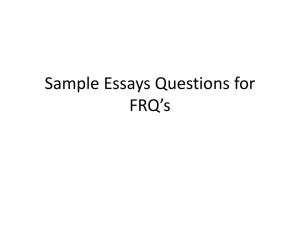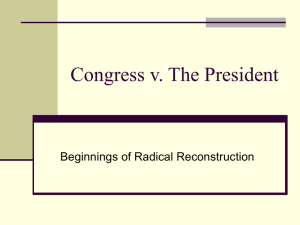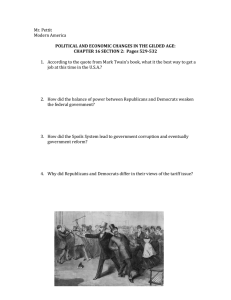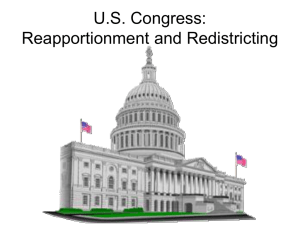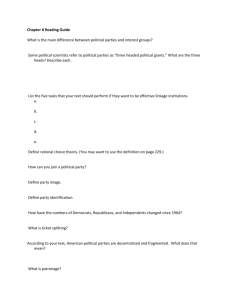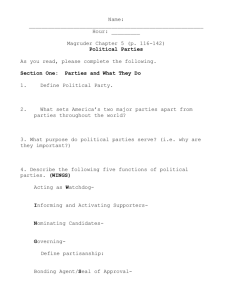Bush vulnerable, but can Dems beat own numbers?
advertisement
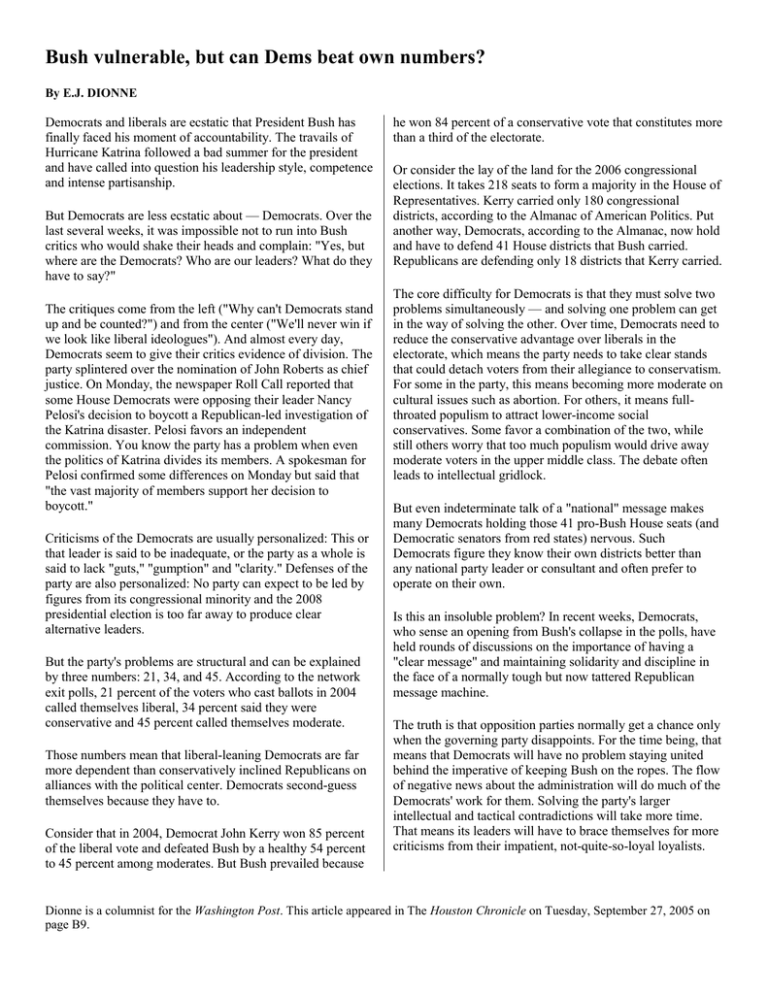
Bush vulnerable, but can Dems beat own numbers? By E.J. DIONNE Democrats and liberals are ecstatic that President Bush has finally faced his moment of accountability. The travails of Hurricane Katrina followed a bad summer for the president and have called into question his leadership style, competence and intense partisanship. But Democrats are less ecstatic about — Democrats. Over the last several weeks, it was impossible not to run into Bush critics who would shake their heads and complain: "Yes, but where are the Democrats? Who are our leaders? What do they have to say?" The critiques come from the left ("Why can't Democrats stand up and be counted?") and from the center ("We'll never win if we look like liberal ideologues"). And almost every day, Democrats seem to give their critics evidence of division. The party splintered over the nomination of John Roberts as chief justice. On Monday, the newspaper Roll Call reported that some House Democrats were opposing their leader Nancy Pelosi's decision to boycott a Republican-led investigation of the Katrina disaster. Pelosi favors an independent commission. You know the party has a problem when even the politics of Katrina divides its members. A spokesman for Pelosi confirmed some differences on Monday but said that "the vast majority of members support her decision to boycott." Criticisms of the Democrats are usually personalized: This or that leader is said to be inadequate, or the party as a whole is said to lack "guts," "gumption" and "clarity." Defenses of the party are also personalized: No party can expect to be led by figures from its congressional minority and the 2008 presidential election is too far away to produce clear alternative leaders. But the party's problems are structural and can be explained by three numbers: 21, 34, and 45. According to the network exit polls, 21 percent of the voters who cast ballots in 2004 called themselves liberal, 34 percent said they were conservative and 45 percent called themselves moderate. Those numbers mean that liberal-leaning Democrats are far more dependent than conservatively inclined Republicans on alliances with the political center. Democrats second-guess themselves because they have to. Consider that in 2004, Democrat John Kerry won 85 percent of the liberal vote and defeated Bush by a healthy 54 percent to 45 percent among moderates. But Bush prevailed because he won 84 percent of a conservative vote that constitutes more than a third of the electorate. Or consider the lay of the land for the 2006 congressional elections. It takes 218 seats to form a majority in the House of Representatives. Kerry carried only 180 congressional districts, according to the Almanac of American Politics. Put another way, Democrats, according to the Almanac, now hold and have to defend 41 House districts that Bush carried. Republicans are defending only 18 districts that Kerry carried. The core difficulty for Democrats is that they must solve two problems simultaneously — and solving one problem can get in the way of solving the other. Over time, Democrats need to reduce the conservative advantage over liberals in the electorate, which means the party needs to take clear stands that could detach voters from their allegiance to conservatism. For some in the party, this means becoming more moderate on cultural issues such as abortion. For others, it means fullthroated populism to attract lower-income social conservatives. Some favor a combination of the two, while still others worry that too much populism would drive away moderate voters in the upper middle class. The debate often leads to intellectual gridlock. But even indeterminate talk of a "national" message makes many Democrats holding those 41 pro-Bush House seats (and Democratic senators from red states) nervous. Such Democrats figure they know their own districts better than any national party leader or consultant and often prefer to operate on their own. Is this an insoluble problem? In recent weeks, Democrats, who sense an opening from Bush's collapse in the polls, have held rounds of discussions on the importance of having a "clear message" and maintaining solidarity and discipline in the face of a normally tough but now tattered Republican message machine. The truth is that opposition parties normally get a chance only when the governing party disappoints. For the time being, that means that Democrats will have no problem staying united behind the imperative of keeping Bush on the ropes. The flow of negative news about the administration will do much of the Democrats' work for them. Solving the party's larger intellectual and tactical contradictions will take more time. That means its leaders will have to brace themselves for more criticisms from their impatient, not-quite-so-loyal loyalists. Dionne is a columnist for the Washington Post. This article appeared in The Houston Chronicle on Tuesday, September 27, 2005 on page B9.
